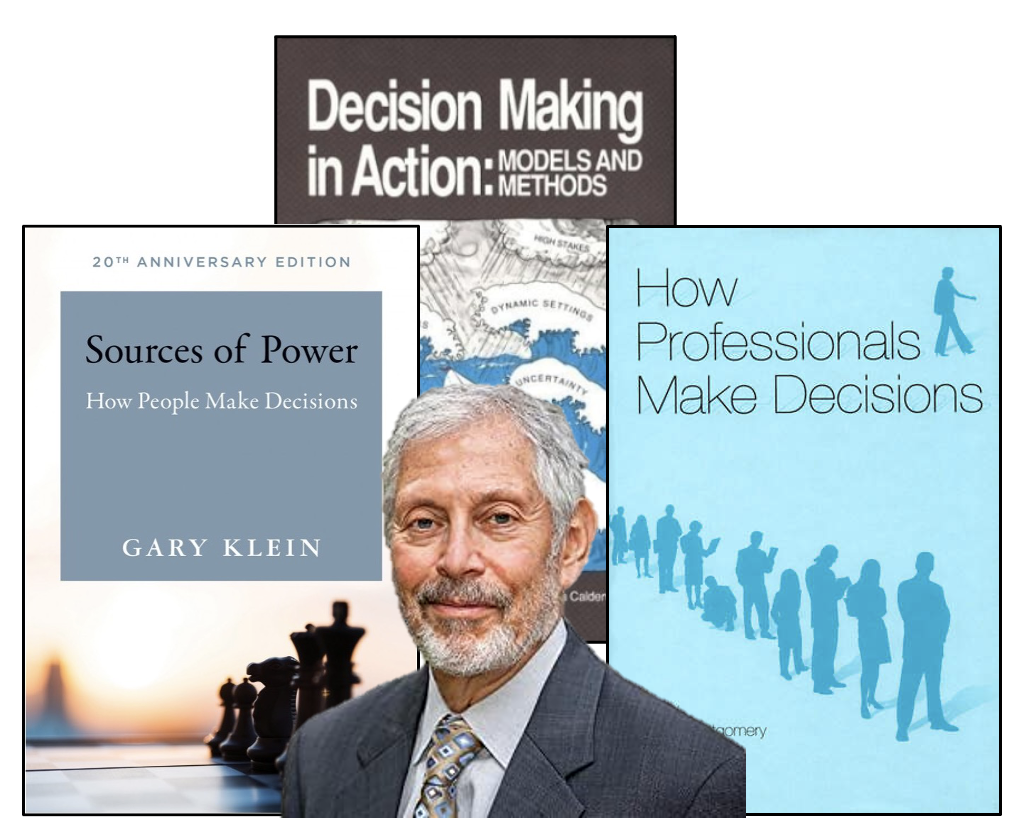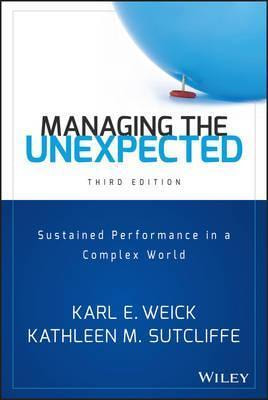NATURAlistic decision making
Naturalistic Decision Making (NDM) seeks to understand how decisions are made under real world or "natural" conditions. It is a holistic approach that explores decision making in context. To this end, NDM researchers focus on developing tools to support decision making in natural environments. This is in contrast to other approaches that design experiments with a "correct" or "optimal" decision established up front, and then seek out decision error under controlled or artificial conditions.
Related to Goal-Oriented Decision Making (GOD), the APE model of decision making was largely derived from NDM research. It is a natural model that describes decision making and goal pursuit. This includes the interaction of intuition and deliberation, as well as acknowledging that decision making is not a linear or phased process, but rather a distributed process with multiple elements operating in parallel.
Related to Goal-Oriented Decision Making (GOD), the APE model of decision making was largely derived from NDM research. It is a natural model that describes decision making and goal pursuit. This includes the interaction of intuition and deliberation, as well as acknowledging that decision making is not a linear or phased process, but rather a distributed process with multiple elements operating in parallel.
Primary Sources
|
Gary Klein
Of all contributions, those of Gary Klein are by far the most noteworthy. His Recognition Primed Decision (RPD) Model can be viewed as the main predecessor to the APE model. Among others, his book "Sources of Power" and the edited books "Decisions Making in Action" and "How Professionals Make Decisions" were highly influential. An honorable mention is "Seeing What Others Don't: The Remarkable Ways We Gain Insights". |
|
Brian Moon
Arguably, the concept of goal-oriented decision making may have never been developed without the contribution of Brian Moon. This included (1) his paper on a gap in NDM, that being the missing role of motivation, and (2) a conversation over tortilla chips and a beer while attending the 16th conference on NDM in Orlando, Florida. |
|
John Schmitt
Beyond theory there is application. The work of John Schmitt on decision games helped to form the basis for teaching GOD. In addition to his workbook "Mastering Tactics", his insights into gaming and concepts like the OODA loop influenced the development of tools used to improve how we learn to make better decisions. |
|
Karl Weick
A central theme in the work of Karl Weick is the concept of "sensemaking". This is an important aspect of understanding the situation in Klein's RPD model, and by extension a major influence the "assess" element of the APE model. Highly influential was Weick's book "Managing the Unexpected". |





